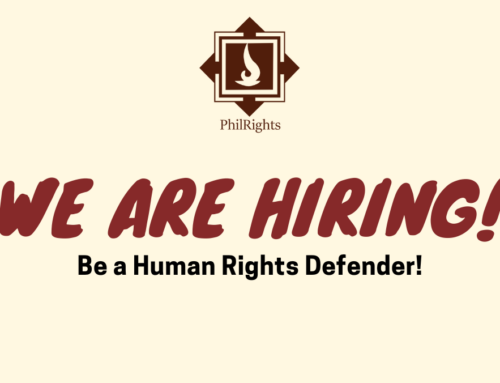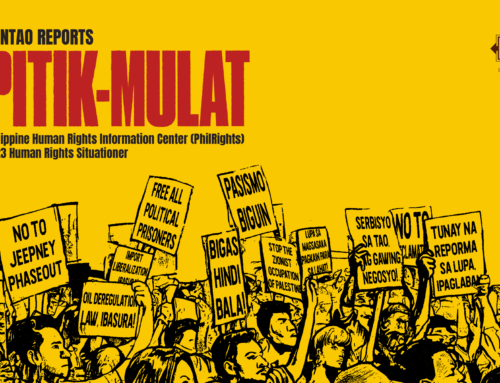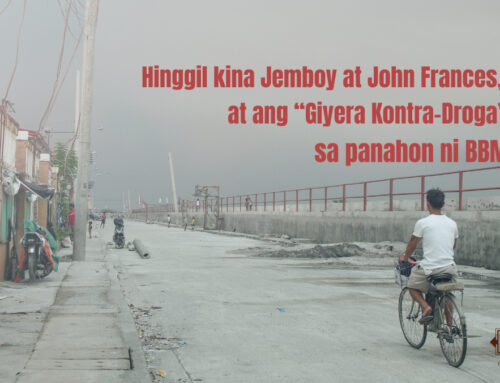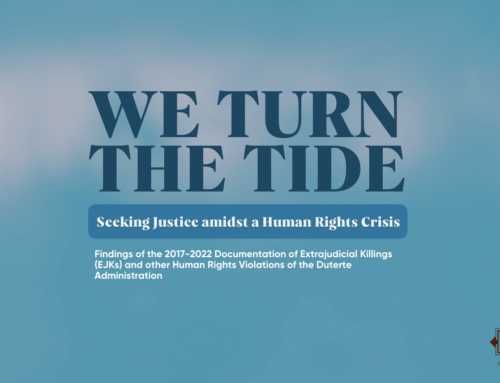(Dakar, October 1, 2013) – The United States announcement of a US$1million contribution to the special Senegalese court charged with trying the former Chadian dictator Hissène Habré affirms the importance of Senegal’s efforts to ensure justice for Chadian victims in Africa, Human Rights Watch said today.
The US contribution was announced on October 1, 2013, after a meeting between Stephen J. Rapp, U.S. ambassador-at-large for war crimes issues, and Senegalese Justice Minister Sidiki Kaba. It follows President Barack Obama’s pledge while in Dakar in June to support the Extraordinary African Chambers, created in February to try the worst crimes of Hissène Habré’s government in Chad. On July 2, the chambers indicted Habré for crimes against humanity, torture, and war crimes, and placed him in pretrial detention.
“Congratulations to Senegal certainly are in order,” said Reed Brody, counsel for Human Rights Watch who has worked with Habré’s victims since 1999. “The development of the special court in Senegal is an important step in the delivery of justice for African victims.”
After the meeting, Rapp told Human Rights Watch that he congratulated Kaba for Senegal’s commitment to fighting impunity in Africa. President Obama praised Senegal’s establishment of the court when he met with Senegalese President Macky Sall, in Dakar, on June 27.
Habré is accused of thousands of political killings and systematic torture during his presidency in Chad, from 1982 until 1990. He was deposed by the current Chadian president, Idriss Deby Itno, and fled to Senegal. He has lived there ever since, as his victims waged a 22-year campaign to bring him to justice.
The Obama administration has supported the victims’ campaign. In September 2011, then-Secretary of State Hillary Clinton wrote to Abdoulaye Wade, then Senegal’s president, to urge a speedy trial after a delay of over a decade. In a June 2012 report to Congress, Secretary Clinton stated that, “ After Sall’s election in April 2012, and the decision of the International Court of Justice on July 20, 2012, ordering Senegal to prosecute Habré “without further delay” or to extradite him, Senegal moved swiftly to establish the court. It reached an agreement with the African Union to place Senegalese and other African judges on the court, which was inaugurated on February 8. In addition to the US donation, Senegal has received pledges or contributions from: Chad: 2 billion CFA francs (US$3,743,000); the European Union: €2 million (US$2,705,500); the Netherlands: €1 million (US$1,352,850); the African Union: US$1 million; Belgium: €500,000 (US$676,300); Germany: €500,000 (US$676,300); France: €300,000 (US$405,800); and Luxembourg: €100,000 (US$135,250). In November 2012, Senegal and a number of donor countries agreed to a budget of €7.4million (US$9.7 million) for the court’s operation. Canada and Switzerland have already provided technical assistance to the office of the prosecutor. Background Habré’s one-party rule was marked by widespread atrocities, including waves of ethnic cleansing. The files of Habré’s political policerecovered by Human Rights Watch reveal the names of 1,208 people who were killed or died in detention, and 12,321 victims of human rights violations. Habré was first indicted in Senegal in 2000, but the country’s courts said that he could not be tried there, so his victims filed a case in Belgium. In September 2005, after four years of investigation, a Belgian judge indicted Habré and Belgium requested his extradition. A Senegalese court refused to send Habré to Belgium. Senegal spent the next three years stalling on a request from the African Union to try Habré in Senegal. Belgium then filed a case against Senegal at the International Court of Justice (ICJ), leading to the court’s July 20, 2012 order to Senegal to prosecute Habré “without further delay” or to extradite him. After Sall’s election, Senegal and the African Union agreed on a plan to create Extraordinary African Chambers to conduct the trial within the Senegalese judicial system. The chambers can prosecute “the person or persons most responsible” for international crimes committed in Chad between June 7, 1982, and December 1, 1990. On July 2, the chambers’ investigating judges charged Habré with crimes against humanity, torture, and war crimes, and placed him in pretrial detention. On July 15, a group of victims and their lawyers filed on behalf of 1,015 victims to register as civil parties before the court. From August 20 to September 2, the investigative judges of the chambers conducted their first investigatory mission to Chad, where they met with 1,097 direct and indirect victims and about 30 potential witnesses, and conducted site visits to former detention centers. Powered By WizardRSS.com | Full Text RSS Feed | RFID blocking | Amazon Affiliate







